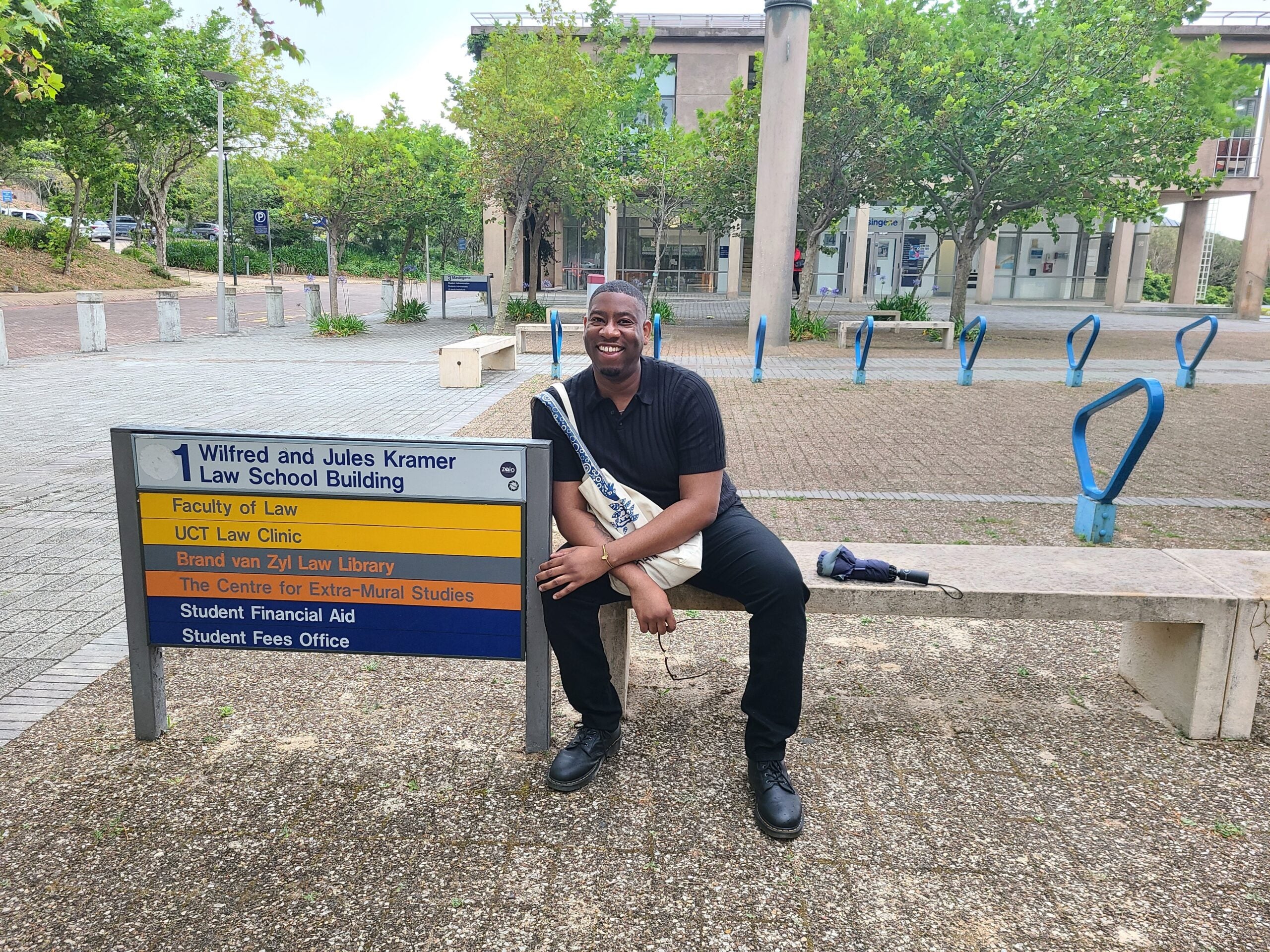Independent Semester Abroad:
University of Cape Town, South Africa

Brandon spent the fall semester of his 3L year at the University of Cape Town (UCT), in Cape Town, South Africa.
Why did you decide to study abroad?
Between undergrad and law school, I spent several years working in civil rights and education. In coming to law school, I was very interested in thinking about how the U.S. constitution can be used to advance the causes I care about, but I quickly came to realize that our constitution is not necessarily equipped to address the most urgent issues of our era.
I thought it would be interesting to see how a country with a history similar to ours, when it comes to race, has used its legal system to advance its society and repair past harms. South Africa seemed like the most appropriate place to do this kind of comparison.
I spoke with an alum who had studied abroad in South Africa, and I spent time during my 1L summer reaching out to professors at universities there, getting their perspectives on how to craft a course of study. A professor at UCT told me about their offerings and gave me a good sense of what I could expect there.
How did you prepare?
My 1L Constitutional Law course and the class on Human Rights and International Law that I took in my 2L year helped me frame some of the issues I wanted to address. I also spoke with Professor Martha Minow several times. She helped me think more clearly about the types of courses I should take in South Africa, and ultimately became my supervisor for my independent semester abroad.
What courses did you take at UCT?
As in many other countries, students in South Africa can pursue law studies as an undergraduate. I took four courses at UCT, three at the undergraduate level and one in the graduate program.
Foundations of South African Law focused on how South African law was crafted to support apartheid, and how apartheid was justified using the law. At the end of the semester, the professor brought in a guest speaker — Judge Albie Sachs, an anti-apartheid activist who later sat on the Constitutional Court of South Africa. As an activist, he was targeted by the government and was the victim of a car bombing. Judge Sachs gave a lecture on detention and trial, and also talked about what was at stake for him, and the country, in opposing apartheid. It was very moving, and brought home how incredible it is that South Africa was able to come out of this very oppressive system and that we were able to talk to people who lived through it.
I also took a course on constitutional law, focusing on the South African Bill of Rights, and a class on African customary law and how these systems are practiced and recognized in the South African constitution. These three classes were all large lecture courses, with up to 120 students.
The class that I enjoyed the most was Litigating the South African Bill of Rights. This graduate-level course (a seminar with about 22 students) was taught by Dennis Davis, a former High Court judge, and offered an in-depth analysis of pivotal decisions by the Constitutional Court. For the final assessment, students were tasked with drafting and presenting a motion on a current issue before the court to a panel of three judges. Judge Davis had also been an anti-apartheid activist; he had met in secret in Nelson Mandela and members of the African National Congress, and later helped draft sections of the South African constitution. He shared some interesting thoughts about how the work he embarked on as a young man has both succeeded and not lived up to his expectations.
How was the experience?
I found the professors at UCT to be very rigorous and the courses to be academically challenging. Grading policies are very stringent, and exams are in-person and closed book. But UCT has support systems to help students succeed. For instance, each of my three undergraduate-level courses included a mandatory study hall, where we spent three or four hours a week with an adjunct or graduate student, reinforcing the materials we had learned in class.
The university took international students on a tour of Cape Town during their first week. We also visited Robben Island, the prison where Nelson Mandela was held for 18 of his 27 years of incarceration. Former prisoners serve as tour guides; our guide was a university student when he was held there, and talked about the oppression the prisoners experienced and the high hopes they had for their country.
The UCT campus, set in the mountains overlooking Cape Town, is beautiful. The university has worked to overcome the effects of apartheid; the student body is more diverse than it used to be, and very engaged in activism to create more opportunities for African and Black students.
How will the semester abroad fit in with your career plans?
I will be returning to Atlanta and joining Holland & Knight in their data privacy practice group. My semester abroad stands out as the finest choice I made throughout my legal education. It is not necessarily related to the work I will be doing immediately, but it has opened up a new space where I could envision myself working or living internationally — in South Africa or somewhere else.